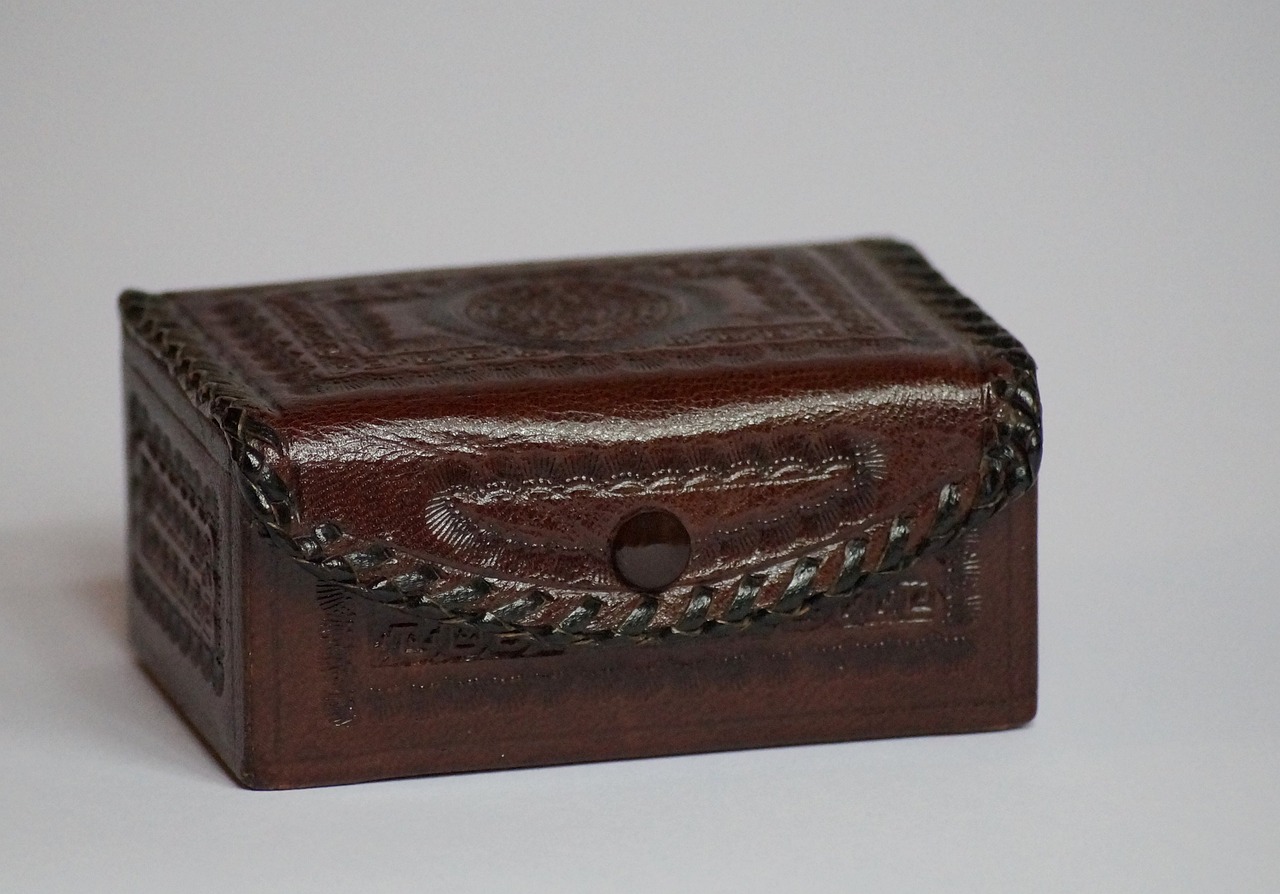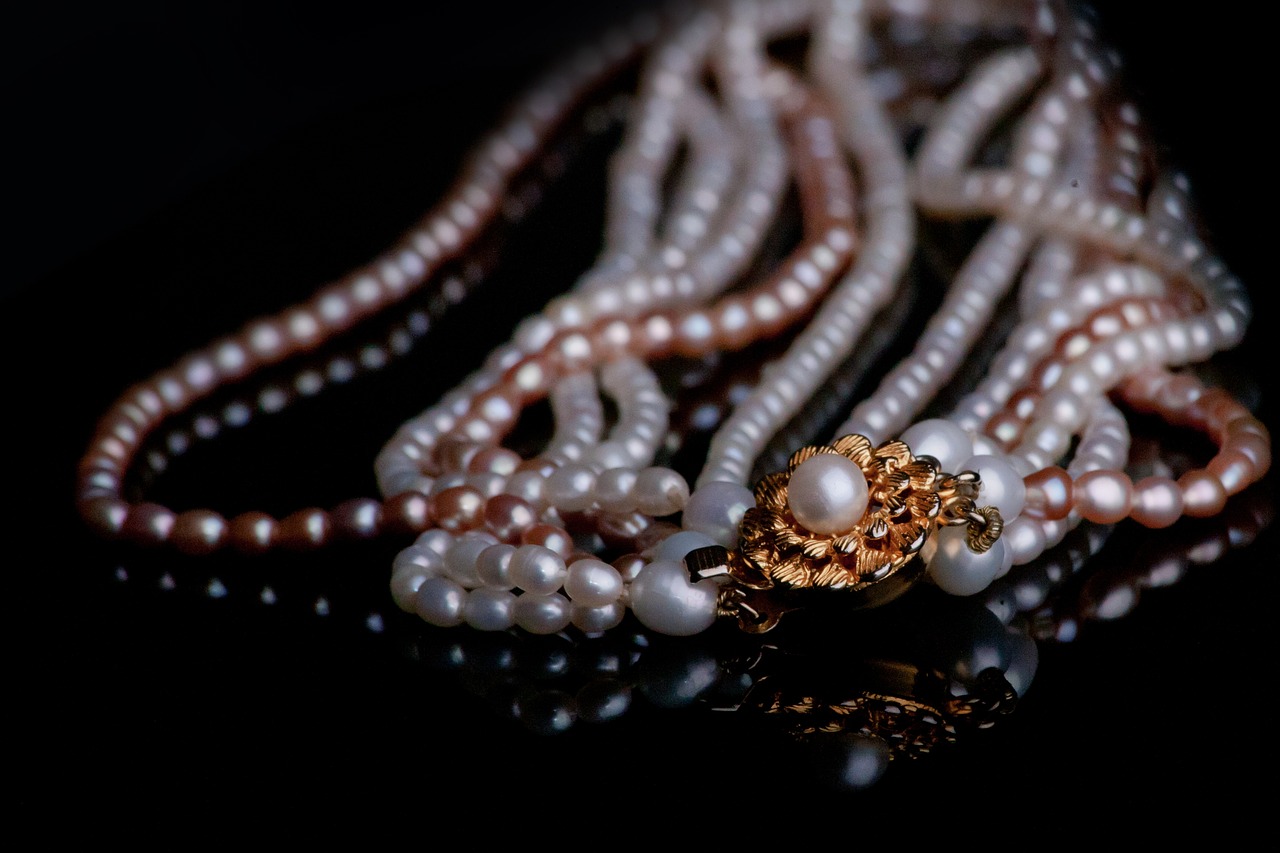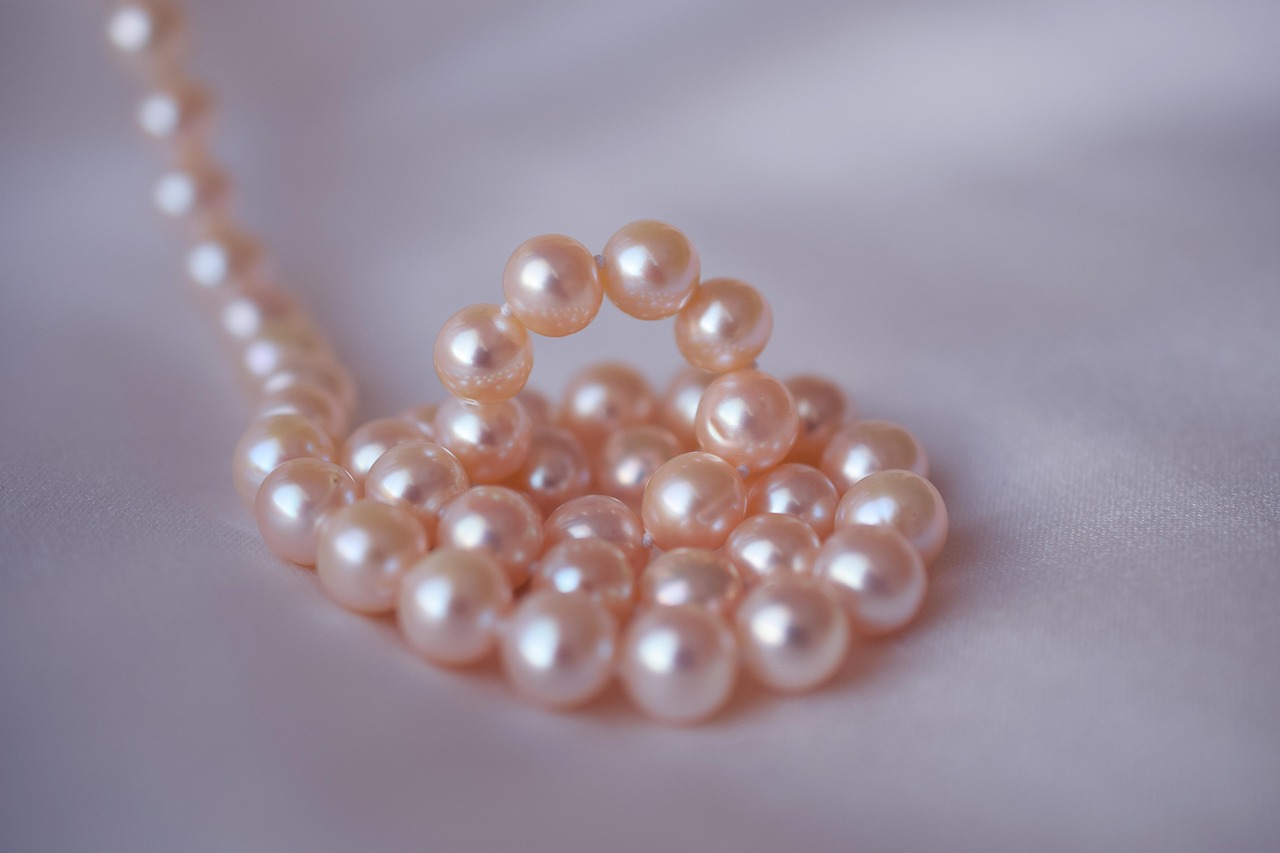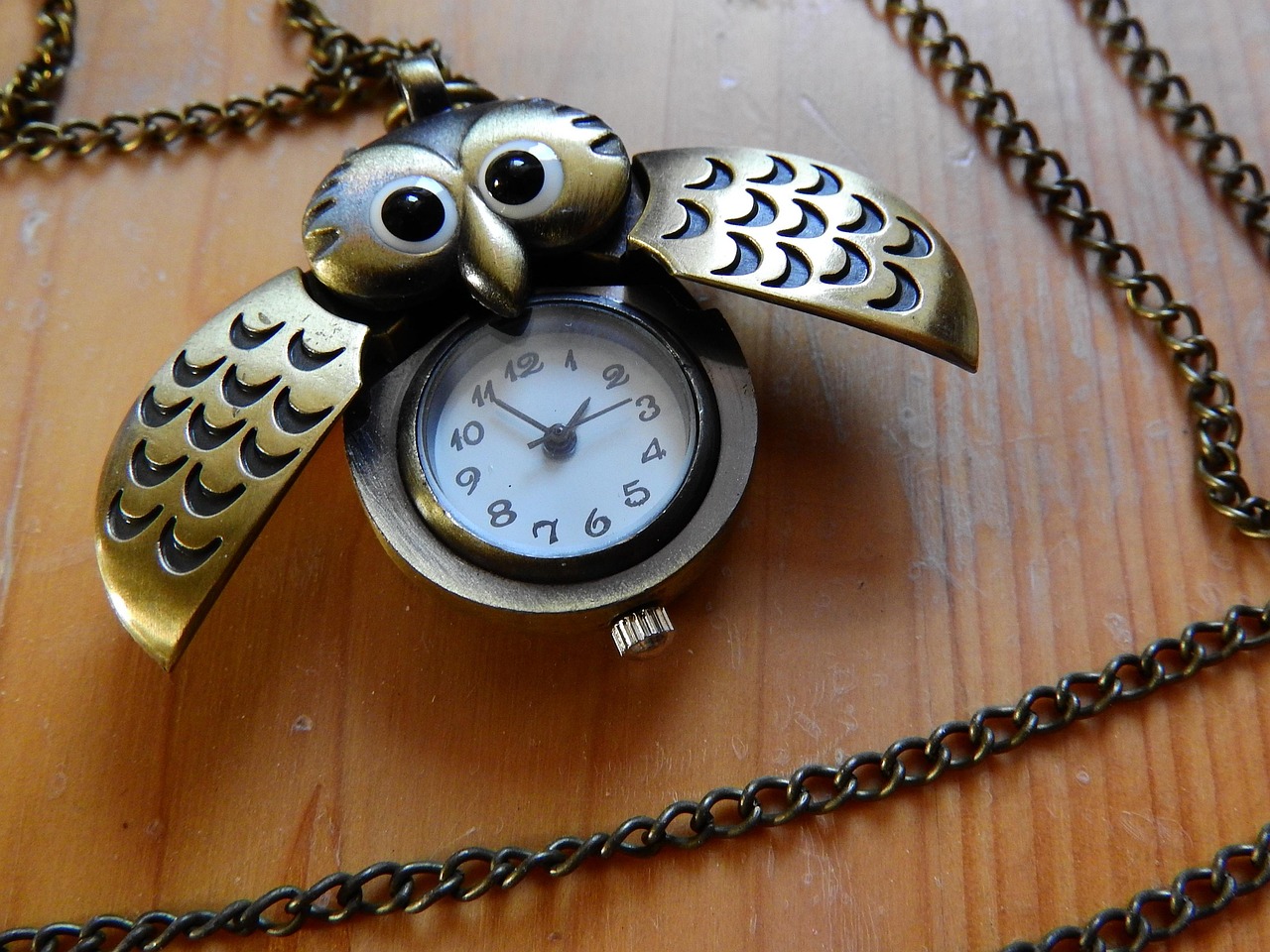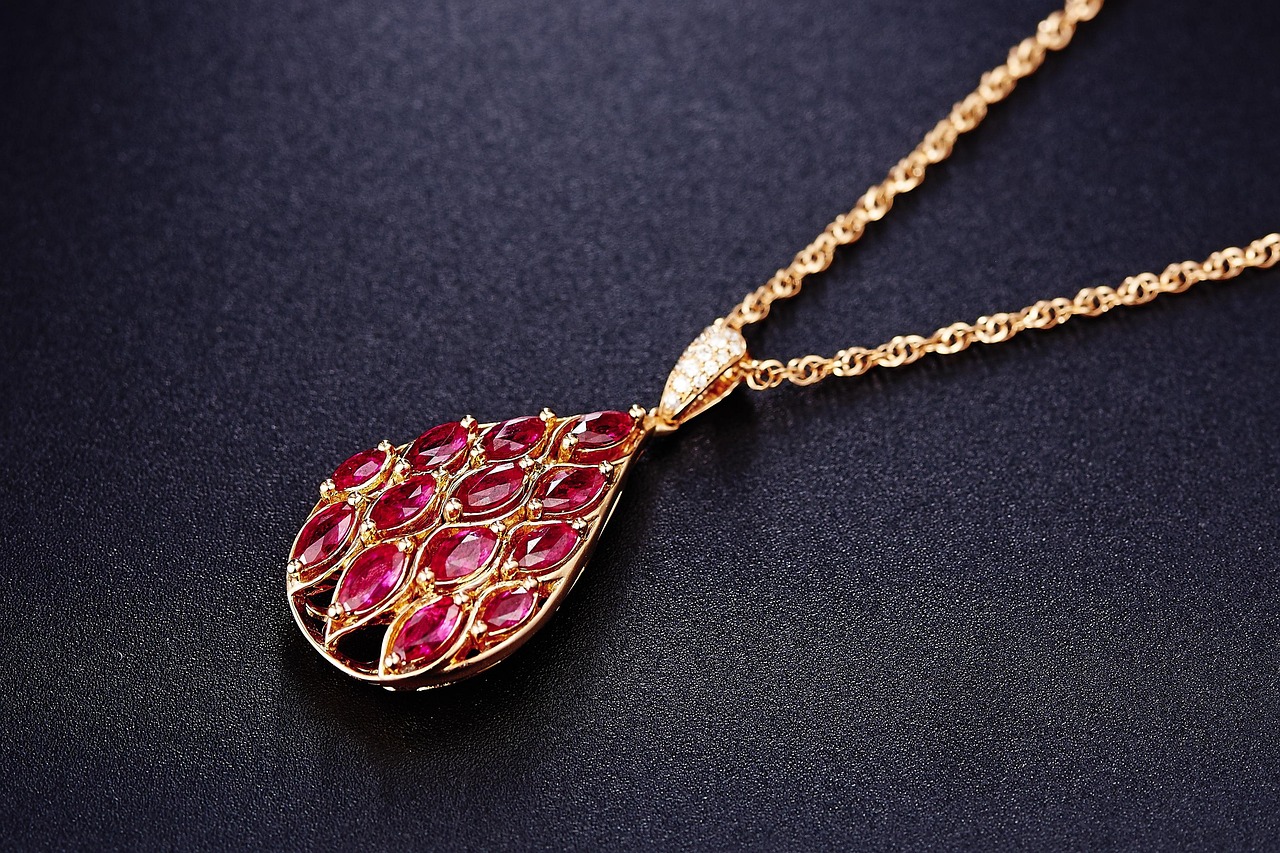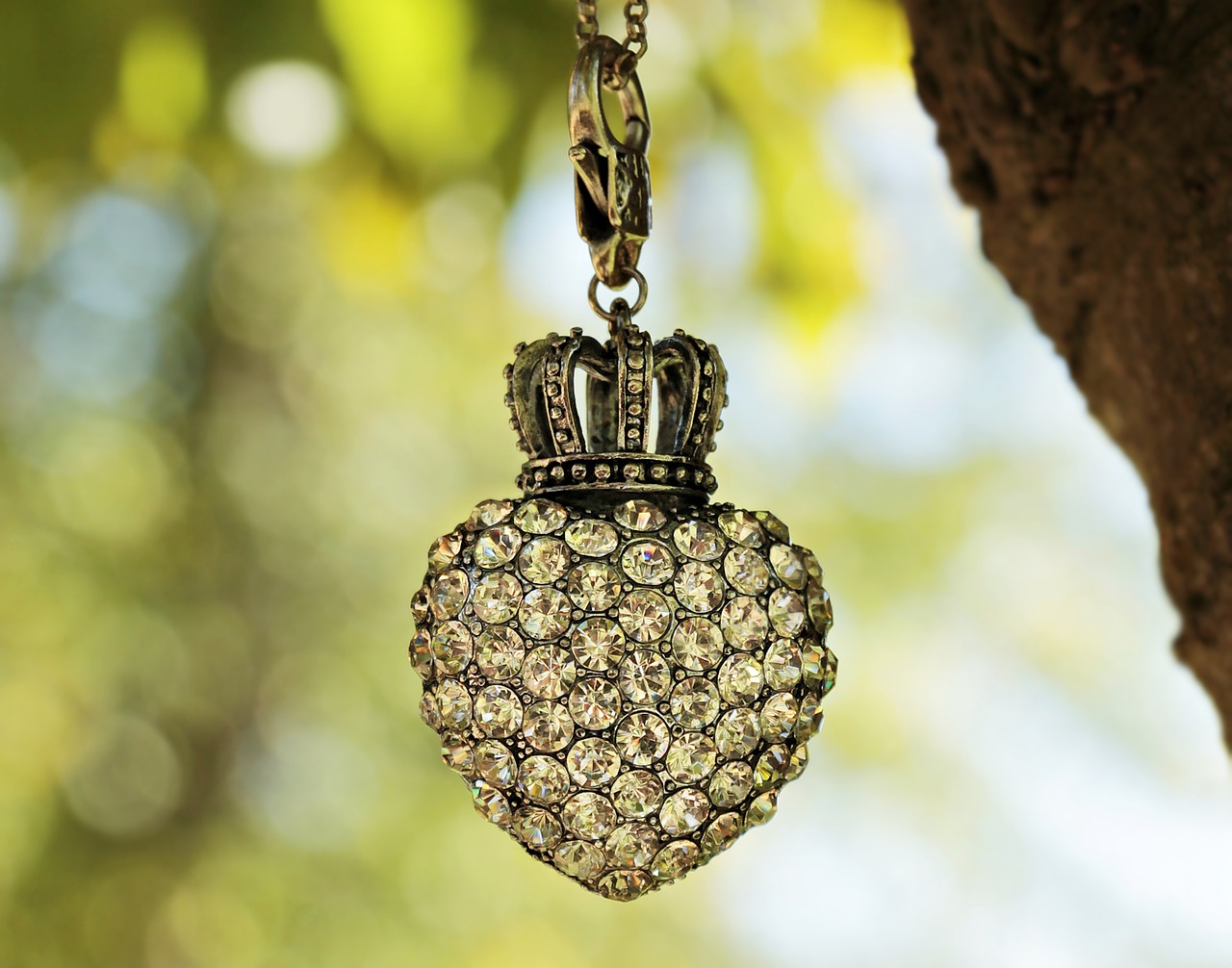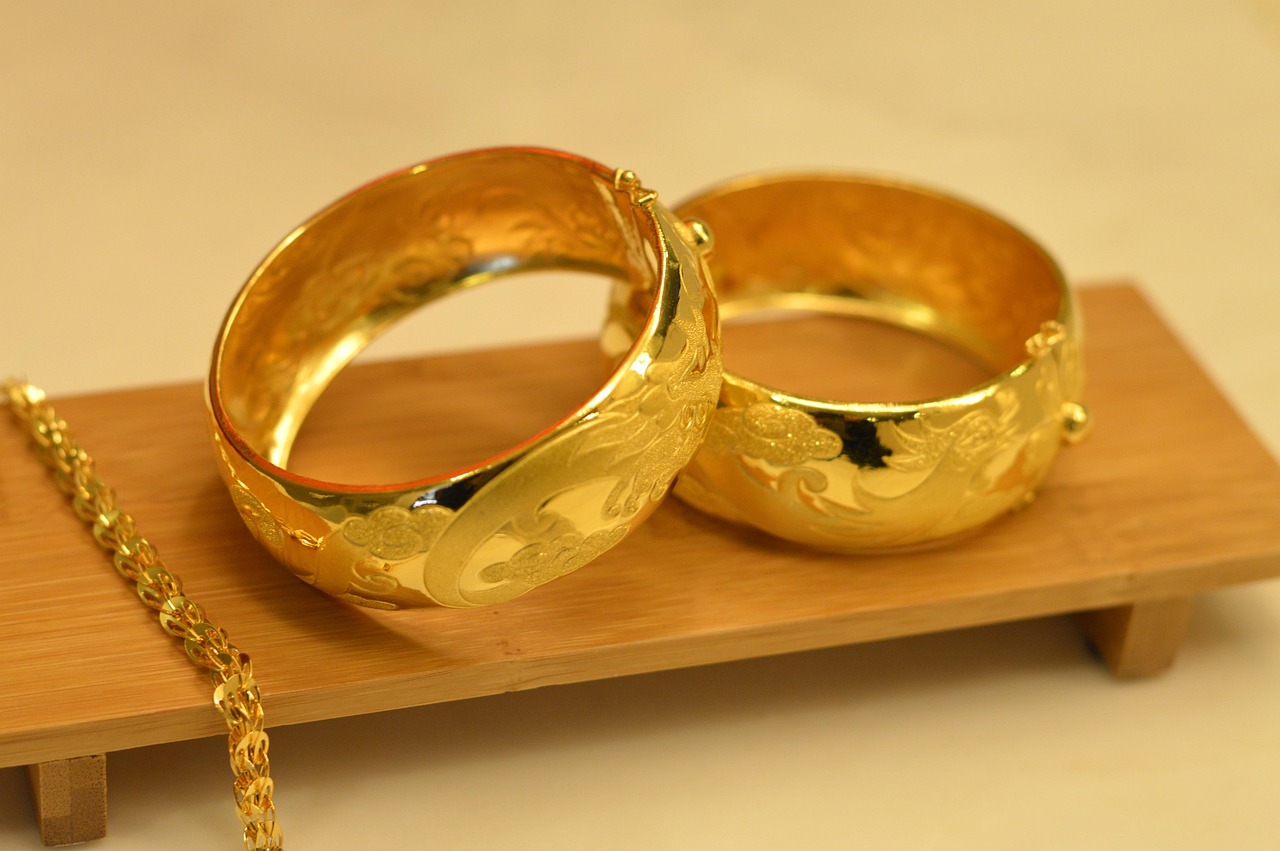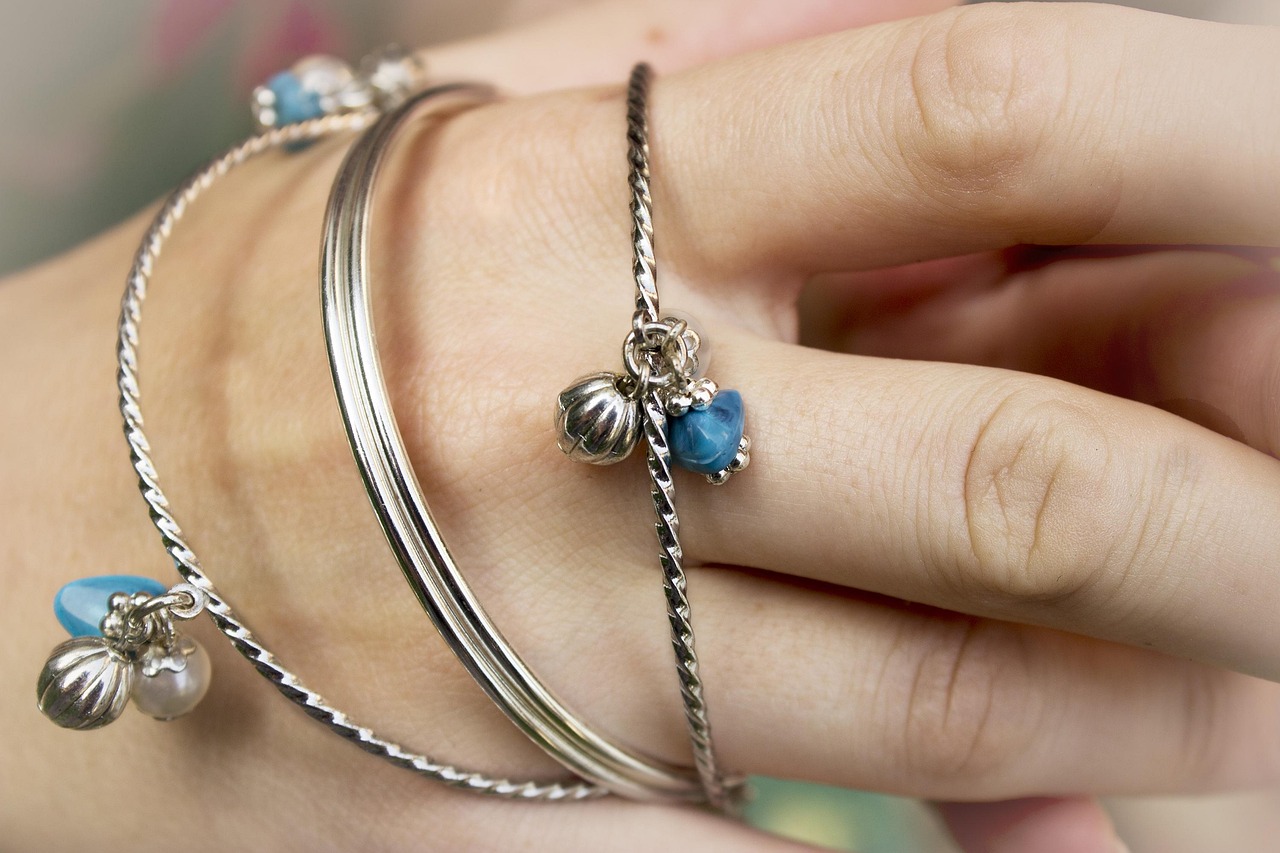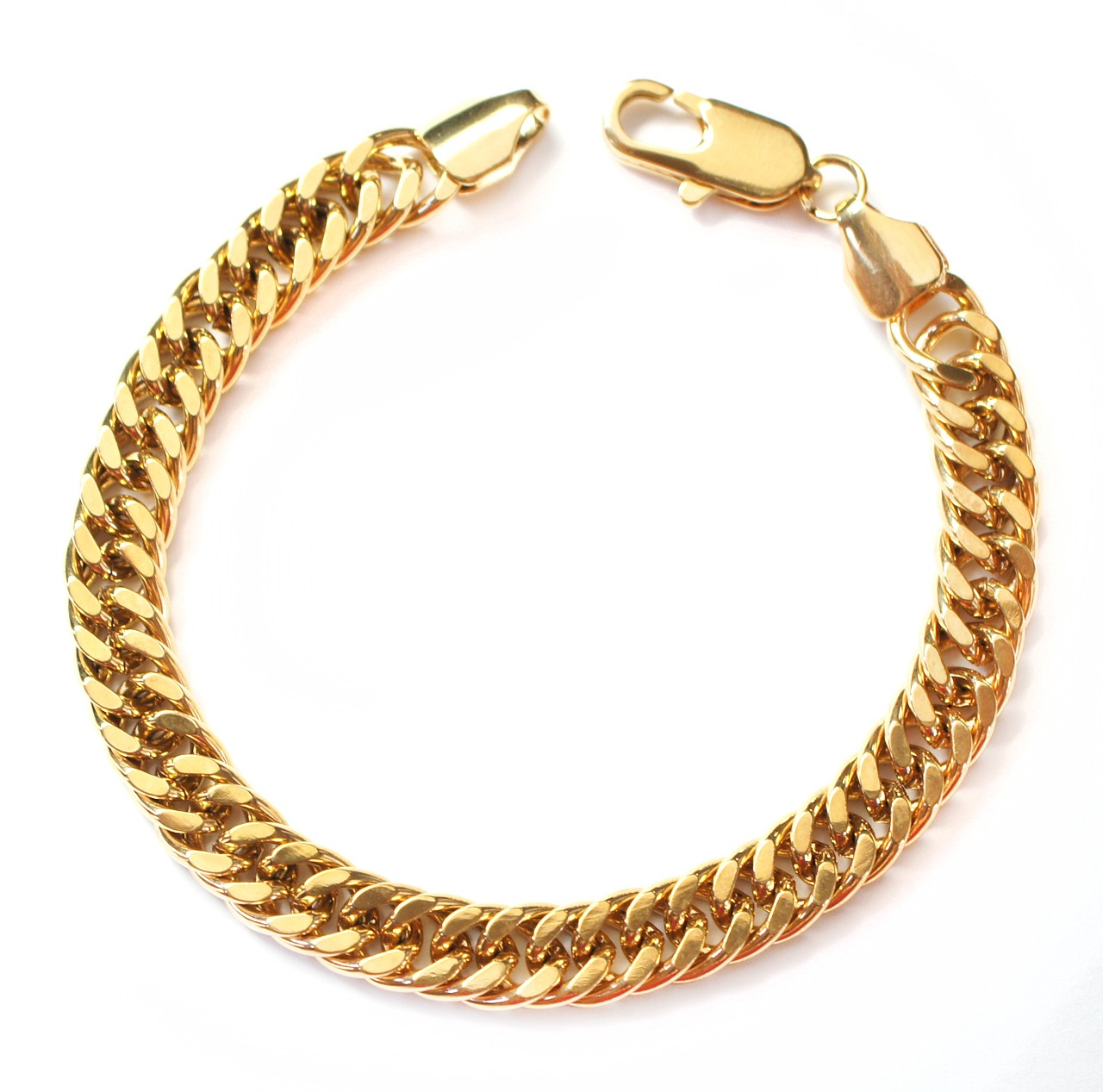This article delves into the most effective strategies for buying and selling estate jewelry. It highlights key platforms, offers tips for valuation, and provides insights into market trends, all aimed at maximizing your profits.
What is Estate Jewelry and Why is it Valuable?
Estate jewelry refers to pre-owned pieces that often come with a rich history. The value of such jewelry is not just in its materials but also in its craftsmanship, design, and the story behind it. Understanding these aspects can aid in making informed decisions in the marketplace.
Where Can You Buy Estate Jewelry?
There are various avenues to purchase estate jewelry:
- Online Marketplaces: Websites like eBay and Etsy offer a vast selection, but buyers must navigate authenticity concerns and seller fees.
- Local Auctions: Often filled with unique pieces, local auctions can provide great opportunities to find valuable items at lower prices.
- Estate Sales: These sales can be treasure troves, allowing buyers to acquire jewelry directly from previous owners.
Online Marketplaces: Pros and Cons
Online platforms like eBay and Etsy present both opportunities and challenges. While they provide access to a wide range of estate jewelry, buyers should be cautious of:
- Seller Ratings: Always check ratings and reviews to gauge reliability.
- Return Policies: Understand the return policy to ensure a satisfactory purchase.
How to Evaluate the Value of Estate Jewelry?
Proper valuation is crucial when buying or selling estate jewelry. Here are some key factors:
- Gemstone Quality: Assess the cut, clarity, color, and carat weight of gemstones as these significantly influence value.
- Metal Purity: The purity of metals like gold, silver, and platinum is vital in determining market value.
Where to Sell Estate Jewelry for Maximum Profit?
Identifying the right platforms for selling estate jewelry can greatly enhance your chances of achieving maximum profit. Consider:
- Jewelry Stores: While selling to local jewelry stores may provide immediate cash, be prepared for lower offers compared to direct sales.
- Online Selling Platforms: Websites like Ruby Lane and The RealReal can connect you with a broader audience, but effective marketing strategies are essential.
What Are the Risks of Buying and Selling Estate Jewelry?
Understanding potential pitfalls in the estate jewelry market can help mitigate risks:
- Counterfeit Concerns: The prevalence of counterfeit items necessitates thorough research and verification.
- Market Fluctuations: Staying informed about trends and economic factors affecting jewelry prices is crucial.
Tips for Successful Transactions in Estate Jewelry
- Negotiation Skills: Strong negotiation skills can significantly impact the final sale price.
- Documentation and Appraisals: Proper documentation and appraisals enhance credibility and justify asking prices to potential buyers.
In conclusion, navigating the estate jewelry market requires careful consideration of various factors. By understanding the value, knowing where to buy and sell, and being aware of risks, you can maximize your profits and enjoy a rewarding experience in this fascinating market.

What is Estate Jewelry and Why is it Valuable?
When delving into the world of estate jewelry, it is essential to grasp its definition and the unique value it holds. Estate jewelry refers to previously owned pieces, often with rich histories and stories attached to them. This type of jewelry can range from vintage items dating back to the early 20th century to more contemporary pieces that have merely changed hands. Understanding what constitutes estate jewelry is crucial for both buyers and sellers in the marketplace.
Why is Estate Jewelry Considered Valuable?
- Historical Significance: Many estate jewelry pieces are crafted during specific periods, reflecting the design trends and craftsmanship of their time. This historical context can significantly enhance their value.
- Craftsmanship: Estate jewelry often showcases superior craftsmanship, with intricate details and techniques that may be less common in modern mass-produced items. Collectors and enthusiasts appreciate the artistry involved.
- Unique Designs: Unlike contemporary jewelry, which may follow current trends, estate pieces often feature unique designs that stand out. This individuality can make them highly sought after.
- Quality Materials: Estate jewelry is frequently made from high-quality materials, including precious metals and gemstones. The purity of the metals and the quality of the stones can significantly affect the piece’s overall value.
How Can Understanding Estate Jewelry Help You?
By understanding the definition and value of estate jewelry, you can make informed decisions whether you are buying or selling. Knowledge of the market can help you identify fair prices, recognize valuable pieces, and avoid potential pitfalls such as counterfeit items. For buyers, knowing what to look for in terms of quality and authenticity can lead to more satisfying purchases. For sellers, understanding the value of your items can ensure you receive a fair price.
Market Trends and Insights:
The estate jewelry market can be influenced by various factors, including economic conditions and consumer preferences. Staying informed about these trends can help both buyers and sellers navigate the marketplace effectively. For instance, certain styles may become more popular due to cultural influences or celebrity endorsements, which can drive prices up.
In summary, having a clear understanding of what estate jewelry is and its inherent value allows you to navigate the buying and selling process more effectively. Whether you are a seasoned collector or a newcomer to the world of estate jewelry, knowledge is your most powerful tool.

Where Can You Buy Estate Jewelry?
When it comes to acquiring estate jewelry, understanding the various avenues available can significantly enhance your chances of finding unique and valuable pieces. The market for estate jewelry is vast, and knowing where to look can lead to remarkable discoveries at competitive prices. Here, we explore some of the most effective places to buy estate jewelry.
Auction houses are often the go-to spots for serious collectors and enthusiasts alike. These venues host a variety of estate jewelry pieces, from vintage rings to antique necklaces. Participating in auctions allows buyers to set their own limits and potentially acquire items at lower than retail prices.
- Live Auctions: Attending live auctions can be thrilling and offers the chance to inspect pieces up close.
- Online Auctions: Platforms like Heritage Auctions or Bonhams provide access to a broader range of items, allowing you to bid from the comfort of your home.
Estate sales are often conducted when someone is downsizing or liquidating their estate. These sales can be a goldmine for finding unique jewelry pieces at lower prices. Typically, estate sales are advertised in local newspapers or online platforms, making them accessible to a wide audience.
- Community Listings: Websites like Craigslist or Facebook Marketplace often feature local estate sales.
- Personal Connections: Networking within your community can lead to private sales that might not be publicly advertised.
The rise of the internet has transformed how we buy estate jewelry. Platforms such as eBay and Etsy offer extensive selections, allowing buyers to browse through thousands of listings from the comfort of their homes.
- eBay: Known for its auction-style listings, eBay allows users to bid on or buy items outright. However, it’s crucial to check seller ratings and reviews to avoid counterfeit pieces.
- Etsy: This platform focuses on handmade and vintage items, making it an excellent source for unique estate jewelry that appeals to niche markets.
Visiting antique shops and local jewelers can also yield valuable finds. These establishments often curate collections of estate jewelry and can provide insights into the pieces’ history and value.
- Expert Guidance: Jewelers can offer appraisals and authenticate pieces, ensuring your purchase is legitimate.
- Personal Touch: Building relationships with local shop owners can lead to exclusive access to new arrivals.
For those seeking high-quality pieces, specialized estate jewelry dealers can be invaluable. These professionals focus specifically on estate jewelry and can offer a curated selection of items, often with detailed histories and appraisals.
- Reputable Dealers: Look for dealers who are members of professional organizations, as they adhere to ethical standards.
- Online Presence: Many dealers have websites showcasing their inventory, making it easy to browse and purchase from anywhere.
In summary, exploring various avenues such as auctions, estate sales, online marketplaces, antique shops, and specialized dealers can significantly enhance your experience in purchasing estate jewelry. By leveraging these resources, you can uncover remarkable pieces that not only add to your collection but also represent valuable investments.
Online Marketplaces: Pros and Cons
In the digital age, buying and selling estate jewelry has become more accessible than ever, thanks to online marketplaces. Platforms like eBay and Etsy offer a vast selection of estate jewelry, enabling buyers to find unique pieces from the comfort of their homes. However, while these platforms provide opportunities, they also present challenges that potential buyers and sellers must navigate.
Advantages of Online Platforms
- Diverse Selection: Online marketplaces are home to an extensive range of estate jewelry, from vintage pieces to contemporary designs. This variety allows buyers to explore different styles and eras, increasing the chances of finding a perfect match.
- Convenience: Shopping online means you can browse listings at any time, making it easier to compare prices and styles without the pressure of in-person sales.
- Global Reach: Unlike local shops, online platforms connect buyers and sellers from around the world, expanding the market for unique estate jewelry.
Challenges of Online Platforms
- Authenticity Concerns: One of the biggest challenges when purchasing estate jewelry online is ensuring the authenticity of the pieces. With counterfeit items becoming increasingly sophisticated, buyers must conduct thorough research and seek seller verification to avoid potential fraud.
- Seller Fees: Platforms like eBay and Etsy charge various fees for listing items and completing sales. These costs can eat into profits for sellers, making it essential to factor them into pricing strategies.
- Return Policies: Each marketplace has its own return policy, which can be confusing for buyers. Understanding these policies is crucial to avoid unexpected issues after a purchase.
Strategies for Success
To maximize the benefits of online marketplaces while mitigating their risks, both buyers and sellers should adopt effective strategies. For buyers, it is advisable to read reviews and check seller ratings before making a purchase. Additionally, requesting detailed photographs of the jewelry and any accompanying documentation can help verify authenticity.
Sellers, on the other hand, should ensure their listings are thorough and transparent. Providing high-quality images and detailed descriptions can attract more buyers and justify asking prices. Additionally, understanding the platform’s fee structure can help sellers set competitive prices that still yield a profit.
Ultimately, online marketplaces like eBay and Etsy can be valuable resources for estate jewelry enthusiasts. By being aware of the pros and cons and implementing effective strategies, both buyers and sellers can navigate these platforms successfully.
eBay: A Popular Choice
eBay has established itself as a leading platform for buying and selling estate jewelry, attracting both seasoned collectors and casual shoppers alike. With its vast selection and competitive pricing, it offers unique opportunities for those looking to acquire or part with valuable pieces. However, navigating eBay’s marketplace requires caution and a strategic approach to ensure a satisfactory experience.
eBay’s popularity stems from its extensive inventory, which includes everything from vintage rings to antique necklaces. Buyers can find unique items that may not be available in local stores. Additionally, eBay often features auction-style listings, allowing buyers to potentially snag a piece at a lower price than retail. However, it is crucial to understand the platform’s dynamics before making a purchase.
One of the most important aspects to consider when purchasing estate jewelry on eBay is the seller rating. This rating is a reflection of the seller’s reliability, based on past transactions and customer feedback. Buyers should:
- Check the seller’s feedback score: Aim for sellers with a score of at least 95% positive feedback.
- Read reviews: Look for comments regarding the quality of the jewelry and the seller’s communication.
- Evaluate the return policy: A clear return policy can provide peace of mind in case the item does not meet expectations.
Understanding the return policy is essential for a safe buying experience. Many sellers offer returns within a specified timeframe, which can range from 14 to 30 days. This policy allows buyers to:
- Inspect the jewelry for authenticity.
- Ensure that the item matches the description provided.
- Return the item if it does not meet their expectations.
Buyers should always read the fine print regarding return shipping costs and restocking fees, as these can vary significantly from one seller to another.
Another critical factor when purchasing estate jewelry on eBay is ensuring the authenticity of the items. Here are some tips to verify authenticity:
- Request additional photos: Ask for close-ups of any hallmarks, stamps, or certifications.
- Use third-party verification: Consider using professional appraisal services for high-value items.
- Research the seller: Look for sellers who specialize in estate jewelry and have a proven track record.
To enhance your buying experience on eBay, consider the following strategies:
- Set a budget: Determine your maximum spend before bidding or purchasing.
- Watchlist items: Use eBay’s watchlist feature to track items of interest.
- Be patient: Sometimes, waiting for the right piece at the right price can yield better results.
In conclusion, while eBay is a popular choice for buying estate jewelry, it’s essential for buyers to remain vigilant and informed. By understanding seller ratings, return policies, and authenticity verification, buyers can navigate the platform successfully and make purchases that are both satisfying and profitable.
Etsy: Handmade and Vintage Finds
Etsy has emerged as a leading platform for those seeking unique handmade and vintage items, making it a prime destination for buyers and sellers of estate jewelry. With its focus on individuality and creativity, Etsy offers a diverse range of distinctive pieces that cater to niche markets, appealing to collectors and fashion enthusiasts alike.
One of the standout features of Etsy is its commitment to supporting independent artisans and vintage sellers. This platform allows users to discover one-of-a-kind jewelry pieces that often carry a rich history. Unlike mass-produced items found in traditional retail stores, estate jewelry on Etsy often tells a story, making it more appealing to buyers who value craftsmanship and uniqueness.
- Variety: Etsy hosts a wide array of sellers, each offering different styles, materials, and designs. This variety ensures that buyers can find something that resonates with their personal taste.
- Direct Communication: Buyers can communicate directly with sellers, allowing for personalized service and the opportunity to ask questions about the jewelry’s history and provenance.
- Support for Small Businesses: Purchasing from Etsy supports independent creators and small businesses, fostering a sense of community and encouraging creativity.
When browsing through the vast selection of estate jewelry on Etsy, it is essential to consider several factors:
- Seller Ratings: Check the seller’s ratings and reviews to gauge their credibility and the quality of their items.
- Item Descriptions: Read item descriptions carefully to understand the materials used, dimensions, and any potential flaws.
- Return Policies: Familiarize yourself with the seller’s return policy in case the item does not meet your expectations.
Selling estate jewelry on Etsy can be a lucrative venture if approached strategically. Here are some tips for maximizing your success:
- High-Quality Photos: Use clear, well-lit images from multiple angles to showcase the jewelry’s details. Highlight any unique features or imperfections that add character.
- Detailed Descriptions: Provide comprehensive descriptions that include information about the jewelry’s history, materials, and any relevant certifications.
- SEO Optimization: Utilize relevant keywords in your listing titles and descriptions to improve visibility in search results, making it easier for potential buyers to find your items.
Staying informed about market trends is crucial for both buyers and sellers. Popular styles and materials can change, impacting the desirability and value of estate jewelry. For instance, vintage pieces from specific eras, such as Art Deco or Mid-Century Modern, often see spikes in interest. By following Etsy’s trending items and engaging with the community, sellers can better position their listings to attract buyers.
In summary, Etsy serves as an exceptional platform for discovering and selling estate jewelry. Its focus on handmade and vintage items, combined with the ability to connect directly with sellers and buyers, creates a unique marketplace that emphasizes individuality and quality. Whether you are a collector looking for that perfect piece or a seller aiming to share your unique treasures, Etsy offers an engaging and rewarding experience.
Local Auctions and Estate Sales
Local auctions and estate sales serve as hidden gems for those passionate about estate jewelry. These events often present a unique opportunity to discover rare and exquisite pieces at prices significantly lower than traditional retail outlets. For enthusiasts and collectors alike, the thrill of sifting through various items, each with its own story, can be both exhilarating and rewarding.
- What Makes Local Auctions Special?
- Variety: Auctions and estate sales typically feature a diverse array of jewelry, from vintage items to contemporary designs.
- Pricing: Many pieces are available at starting bids that are often below market value, allowing savvy buyers to snag a deal.
- Unique Finds: Unlike retail stores, these events often showcase one-of-a-kind items that you won’t find elsewhere.
Benefits of Attending Local Auctions
Participating in local auctions and estate sales provides numerous advantages:
- Personal Interaction: Buyers can interact directly with sellers or estate representatives, gaining insights into the jewelry’s history and provenance.
- Bidding Experience: The competitive nature of auctions can lead to exciting moments, and the adrenaline rush of bidding can enhance the overall experience.
- Networking Opportunities: Attending these events can connect you with other collectors and enthusiasts, potentially leading to future buying and selling opportunities.
How to Find Local Auctions and Estate Sales
Finding local auctions and estate sales requires some research. Here are some effective strategies:
- Online Listings: Websites like AuctionZip and EstateSales.net provide comprehensive listings of upcoming auctions and estate sales in your area.
- Social Media: Join local Facebook groups or follow community pages that share information about estate sales and auctions.
- Local Newspapers: Check classified ads in local newspapers, as many estate sales still advertise through traditional media.
Tips for Bidding at Auctions
To maximize your chances of securing valuable estate jewelry, consider the following tips:
- Set a Budget: Before attending, determine your maximum bid to avoid overspending in the heat of the moment.
- Research: Familiarize yourself with the pieces of interest by researching their market value and potential worth.
- Observe Before Bidding: Attend a few auctions as an observer first to understand the bidding process and gauge the competition.
Conclusion
In summary, local auctions and estate sales are invaluable resources for estate jewelry enthusiasts. They offer a unique blend of excitement, variety, and the potential for significant savings. By conducting thorough research, setting budgets, and honing your bidding skills, you can uncover remarkable pieces that enhance your collection while enjoying the thrill of the hunt.
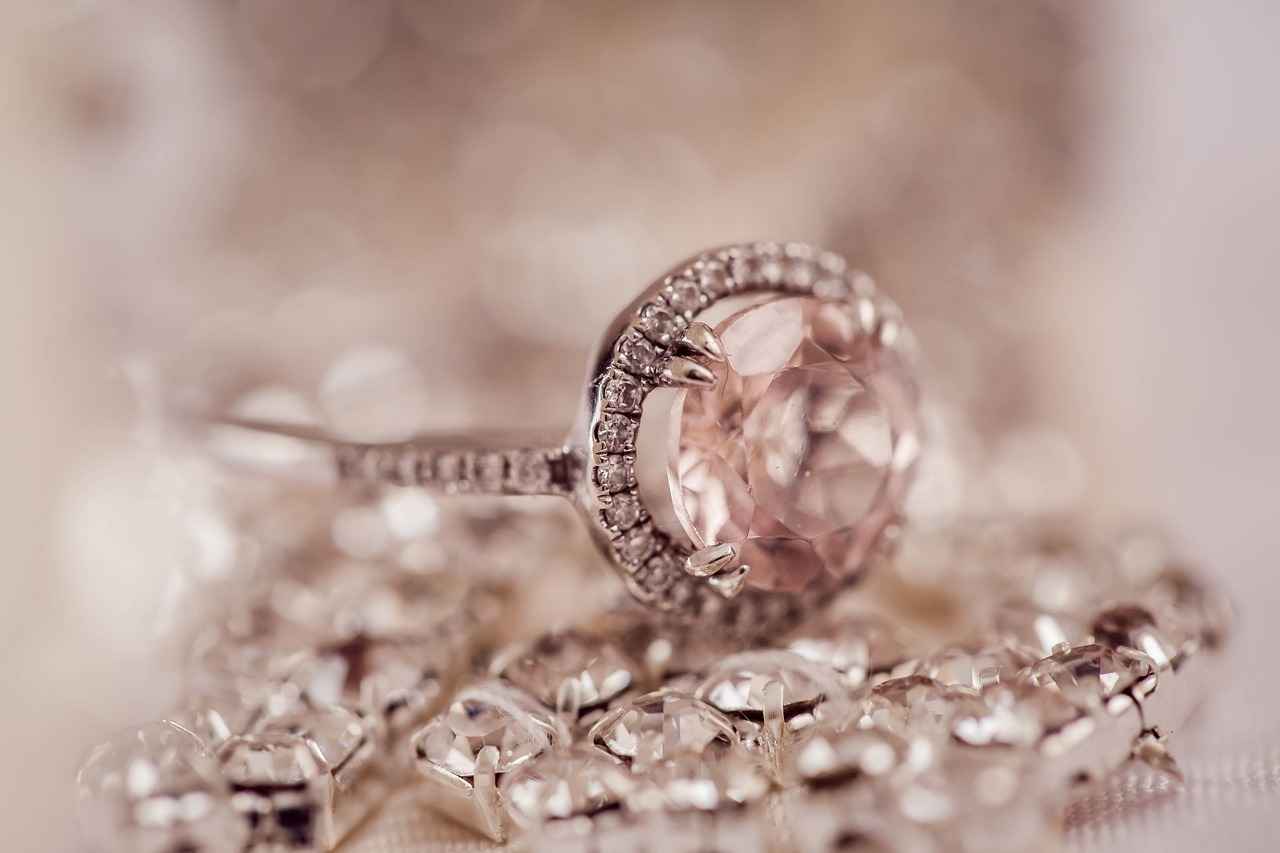
How to Evaluate the Value of Estate Jewelry?
When it comes to estate jewelry, understanding its value is essential for both buyers and sellers. Proper valuation is crucial, as it involves a variety of factors that can significantly influence the final price. In this article, we will explore the key elements that contribute to the valuation of estate jewelry, helping you make informed decisions whether you are looking to buy or sell.
Valuing estate jewelry accurately is vital because it ensures that both parties in a transaction receive a fair deal. Without a proper evaluation, sellers may undervalue their pieces, missing out on potential profits, while buyers risk overpaying for items that may not be worth the asking price.
- Materials Used: The type of materials, such as gold, silver, or platinum, plays a significant role in determining the value of jewelry. Higher purity metals usually command a higher price.
- Craftsmanship: The quality of craftsmanship, including the design and finishing details, can greatly influence a piece’s desirability and value.
- Gemstone Quality: The quality of any gemstones present, assessed through criteria such as cut, clarity, color, and carat weight, is essential in establishing the overall worth.
- Market Demand: Trends in the jewelry market can affect the value of estate jewelry. Popular styles or designer pieces may fetch higher prices due to increased demand.
When evaluating gemstones, it is important to consider the Four Cs: cut, clarity, color, and carat weight. Each of these factors contributes to the overall quality and, consequently, the value of the jewelry. For example, a well-cut diamond with high clarity and a rich color will be worth significantly more than a poorly cut stone with visible inclusions.
The purity of metals used in jewelry is measured in karats for gold and as a percentage for silver and platinum. For instance, 24-karat gold is considered pure, while 18-karat gold contains 75% gold and 25% other metals. Understanding these distinctions is vital for accurately assessing the value of your jewelry.
Keeping an eye on current market trends is essential for both buyers and sellers. Prices for estate jewelry can fluctuate based on economic conditions, fashion trends, and even celebrity endorsements. For instance, if a particular style becomes trendy, the value of similar estate pieces can increase dramatically.
Having proper documentation, including appraisals and certificates of authenticity, can enhance the credibility of your jewelry. An official appraisal provides a professional evaluation of the piece, helping to justify your asking price to potential buyers. It is advisable to seek the services of a certified appraiser who specializes in estate jewelry.
In conclusion, understanding how to evaluate the value of estate jewelry is crucial for making informed buying and selling decisions. By considering factors such as materials, craftsmanship, gemstone quality, and market demand, you can ensure that you are getting the best deal possible. Whether you are a buyer looking for a unique piece or a seller aiming to maximize profit, a thorough valuation process will serve you well in the estate jewelry market.
Understanding Gemstone Quality
Understanding the quality of gemstones is essential for anyone involved in the buying or selling of estate jewelry. The value of a piece can be significantly influenced by four critical factors: cut, clarity, color, and carat weight. Each of these attributes plays a unique role in determining not only the aesthetic appeal of a gemstone but also its overall market value.
The cut of a gemstone refers to how well it has been shaped and faceted. A well-cut gemstone will reflect light beautifully, enhancing its brilliance and sparkle. Poorly cut stones may appear dull and lifeless, even if they possess excellent clarity and color. When assessing a gemstone’s cut, consider the following:
- Proportions: The dimensions of the stone should be balanced.
- Symmetry: The facets should be evenly aligned.
- Polish: The surface should be smooth and reflective.
Clarity refers to the presence of internal or external flaws, known as inclusions and blemishes, respectively. Stones with fewer imperfections are typically more valuable. The clarity scale ranges from Flawless (FL) to Poor (I3). Understanding clarity is crucial because:
- Flaws can affect light performance: Even minor inclusions can impact how light interacts with the stone.
- Higher clarity equals higher value: A flawless diamond, for example, can fetch a significantly higher price than one with visible inclusions.
Color is one of the most important factors when assessing gemstones, especially colored stones like sapphires, rubies, and emeralds. The color quality is evaluated based on three main components:
- Hue: The basic color of the gemstone.
- Saturation: The intensity of the color.
- Tone: The lightness or darkness of the color.
For example, a deep blue sapphire is generally more valuable than a pale blue one. The more vivid and saturated the color, the higher the gemstone’s value.
Carat weight measures the size of the gemstone. One carat equals 200 milligrams. While larger stones are often more valuable, the relationship between carat weight and price is not linear. The overall value is also influenced by the other three factors: cut, clarity, and color. A smaller stone with exceptional quality may be worth more than a larger stone with inferior quality.
In summary, when assessing the value of estate jewelry, is paramount. Each factor—cut, clarity, color, and carat weight—interplays to create the overall value of a piece. Buyers and sellers must carefully evaluate these characteristics to ensure they are making informed decisions in the estate jewelry market. By doing so, they can maximize their investment and appreciate the beauty of these timeless treasures.
Assessing Metal Purity
The jewelry market is a vibrant space filled with unique pieces that tell stories of their own. Among the many factors that influence the value of jewelry, metal purity stands out as a critical component. Understanding how to assess the purity of metals like gold, silver, and platinum is essential for both buyers and sellers aiming to maximize their profits.
The purity of metals used in jewelry significantly affects its market value and resale potential. For instance, gold jewelry is often marked with a karat rating, indicating the proportion of pure gold in the alloy. The higher the karat, the more valuable the piece. Similarly, silver is typically marked as sterling (92.5% pure), while platinum is known for its high purity levels, often exceeding 95%.
- Gold: Measured in karats (K), with 24K representing pure gold.
- Silver: Commonly referred to as sterling silver, which is 92.5% pure.
- Platinum: Usually marked as 950, indicating 95% purity.
Jewelry pieces often come with markings that indicate their purity. Familiarizing yourself with these markings can help you assess the value of your jewelry accurately. Here are some common symbols:
- Gold: 10K, 14K, 18K, 22K, 24K- Silver: .925, S925, Sterling- Platinum: 950, Plat
The higher the purity, the greater the value of the metal. For example, a piece of 24K gold jewelry will typically fetch a higher price than a similar piece made from 14K gold due to its greater gold content. This is crucial for sellers who want to price their items competitively and for buyers who want to ensure they are getting their money’s worth.
Understanding current market trends can also influence your decisions regarding metal purity. For instance, fluctuations in gold prices can directly impact the resale value of gold jewelry. Keeping an eye on these trends can help both buyers and sellers make informed decisions.
For those unsure about the purity of their jewelry, there are several methods to test it:
- Acid Test: A simple test using acid solutions can help identify the karat of gold.
- Electronic Tester: Devices that measure conductivity can provide a quick and accurate assessment of metal purity.
- Professional Appraisal: For high-value pieces, seeking a professional appraisal is advisable to ensure accurate valuation.
In conclusion, assessing the purity of metals in jewelry is not just a technical process but a crucial element that can significantly affect the value and resale potential of your pieces. By understanding how to evaluate purity, recognizing market trends, and employing testing methods, both buyers and sellers can navigate the estate jewelry market more confidently and profitably.

Where to Sell Estate Jewelry for Maximum Profit?
When it comes to selling estate jewelry, choosing the right platforms can significantly impact your profit margins. With a plethora of options available, understanding the strengths and weaknesses of each can lead to informed decisions that maximize your returns.
Identifying the right platforms for selling estate jewelry is crucial for several reasons:
- Audience Reach: Different platforms attract different demographics, affecting your chances of connecting with potential buyers.
- Cost Structure: Fees and commissions can vary widely, influencing your overall profit.
- Trust and Credibility: Reputable platforms can enhance buyer confidence, leading to faster sales.
Here are some of the most effective platforms to consider:
- eBay: A well-known platform with a vast audience, eBay allows sellers to auction their items or sell at a fixed price. However, sellers should be aware of listing fees and the importance of maintaining a good seller rating to attract buyers.
- Etsy: This platform is ideal for vintage and handmade items, making it a great choice for unique estate jewelry. Sellers benefit from a niche audience, but they should also consider the transaction fees involved.
- Ruby Lane: Focused on vintage and antique items, Ruby Lane connects sellers with serious collectors. Its curated environment adds an element of trust, but sellers must adhere to strict guidelines.
- The RealReal: This luxury consignment service specializes in high-end items. The platform offers authentication services, which can help in selling high-value estate jewelry.
While online platforms offer convenience, local options can also provide viable alternatives:
- Jewelry Stores: Local jewelers may purchase estate jewelry outright or offer consignment options. While this can provide quick cash, the offers may be lower than what you could achieve through direct sales.
- Estate Sales and Auctions: Participating in local estate sales or auctions can yield impressive results. These venues often attract serious buyers looking for unique pieces.
To achieve maximum profit when selling estate jewelry, consider the following strategies:
- Research Market Trends: Understanding current trends in jewelry styles and materials can help you price your items competitively.
- High-Quality Photography: Presenting your jewelry with clear, high-resolution images can significantly enhance buyer interest.
- Effective Descriptions: Craft detailed and engaging descriptions that highlight the unique features and history of your jewelry.
In conclusion, selecting the right platform for selling estate jewelry is essential for maximizing your profits. By understanding the various options available, from online marketplaces to local jewelry stores, you can make informed decisions that align with your selling goals. Remember, thorough research and effective marketing strategies are key to achieving the best outcomes in this lucrative market.
Jewelry Stores: A Reliable Option
When considering the sale of estate jewelry, one option that often comes to mind is selling to local jewelry stores. This route can provide immediate cash, which is appealing for many sellers. However, it’s essential to understand the dynamics of this market to make an informed decision.
Local jewelry stores can serve as a convenient outlet for selling estate jewelry. They offer an easy transaction process, allowing sellers to walk in, present their items, and receive cash on the spot. This immediacy is particularly beneficial for those needing quick funds or looking to declutter their collections.
However, it is crucial to note that while selling to jewelry stores may provide immediate cash, it often comes with lower offers compared to selling directly to consumers. This discrepancy arises from several factors:
- Markup on Resale: Jewelry stores typically need to resell the items at a profit. Therefore, they will offer less than the market value to ensure they can cover their costs and make a profit.
- Overhead Costs: Local jewelers have operating expenses such as rent, utilities, and salaries, which can influence the offers they make to sellers.
- Market Demand: The store’s current inventory and demand for specific types of jewelry can significantly impact the offer. If they already have similar items in stock, they may be less inclined to offer a competitive price.
Despite these potential drawbacks, selling to local jewelry stores can still be a viable option for many. Sellers should conduct thorough research on the store’s reputation and compare offers from multiple locations. This comparison can help ensure that sellers receive a fair price for their items.
It’s important for sellers to understand how jewelry stores determine their offers. Factors such as gemstone quality, metal purity, and overall condition of the jewelry play a significant role. Store owners often rely on their experience and market knowledge to assess value, which can sometimes lead to undervaluation.
To make the most of this selling option, sellers should consider obtaining an independent appraisal before approaching local stores. This appraisal can serve as a benchmark, providing a clearer picture of the item’s worth and equipping the seller with the information needed to negotiate effectively.
While local jewelry stores offer convenience, sellers should also explore other avenues such as online marketplaces, auctions, or estate sales. Each option presents unique advantages and challenges:
- Online Marketplaces: Websites like eBay and Etsy can connect sellers with a broader audience, potentially leading to higher offers. However, sellers must navigate shipping, listing fees, and the need for effective marketing.
- Auctions: Local or online auctions can attract competitive bids, sometimes resulting in better prices than jewelry stores. However, sellers should be prepared for the auction process, which can be unpredictable.
- Estate Sales: Hosting an estate sale allows sellers to set their prices and engage directly with buyers. This method can be particularly effective for unique or high-value pieces.
In conclusion, while selling to local jewelry stores can provide immediate cash, it often comes with the trade-off of lower offers. Sellers should weigh their options carefully, considering the potential for higher profits through alternative selling methods. By being informed and prepared, sellers can make the best choice for their estate jewelry.
Online Selling Platforms: Best Practices
Online Selling Platforms have revolutionized the way we buy and sell estate jewelry, providing access to a global audience. Platforms like Ruby Lane and The RealReal offer unique opportunities, but success in this arena requires strategic planning and effective marketing techniques. Here’s how to navigate these platforms for maximum profit.
Online marketplaces allow sellers to reach a broader audience compared to traditional methods. This visibility can lead to higher sales potential, especially for unique or rare estate jewelry pieces. However, it is essential to understand the nuances of each platform to optimize your listings.
- High-Quality Photography: Invest in professional photography to showcase your jewelry. Bright, clear images from multiple angles can significantly enhance buyer interest.
- Compelling Descriptions: Craft detailed descriptions that highlight the history, materials, and craftsmanship of each piece. Use keywords that potential buyers might search for.
- Competitive Pricing: Research similar items on the platform to set a competitive price. Consider the condition, rarity, and market demand when determining your price point.
- Promotional Offers: Use promotional strategies such as discounts or bundled deals to attract buyers. Limited-time offers can create urgency and encourage purchases.
Establishing trust is crucial when selling online. Buyers often look for credibility before making a purchase, especially with high-value items like estate jewelry. Here are some tips:
- Provide Authenticity Certificates: If available, include certificates of authenticity or appraisals to reassure buyers of the item’s value.
- Transparent Return Policies: Clearly outline your return policy to give buyers confidence in their purchase. A flexible return policy can increase sales.
- Engage with Customers: Respond promptly to inquiries and engage with potential buyers. Good communication can lead to positive reviews and repeat customers.
Search Engine Optimization (SEO) is vital for increasing visibility on online platforms. Here are some techniques to implement:
- Keyword Research: Identify relevant keywords related to estate jewelry and incorporate them into your titles and descriptions.
- Tags and Categories: Use appropriate tags and categories to ensure your items are easily searchable. This can improve your chances of being found by interested buyers.
- Social Media Promotion: Promote your listings on social media platforms to drive traffic to your online store. Engaging posts can attract potential buyers and increase visibility.
While online selling platforms offer numerous benefits, they also come with challenges. It’s important to be aware of the following:
- Competition: The online marketplace is crowded. Differentiating your listings will require effort and creativity.
- Fees and Commissions: Be mindful of the fees associated with selling on these platforms, as they can eat into your profits.
- Shipping and Handling: Ensure that you have a reliable shipping strategy in place. Proper packaging is essential to avoid damage during transit.
In conclusion, leveraging online selling platforms like Ruby Lane and The RealReal can significantly enhance your ability to sell estate jewelry profitably. By employing effective marketing strategies, building trust with buyers, and utilizing SEO techniques, you can navigate the challenges of online selling while maximizing your profits.
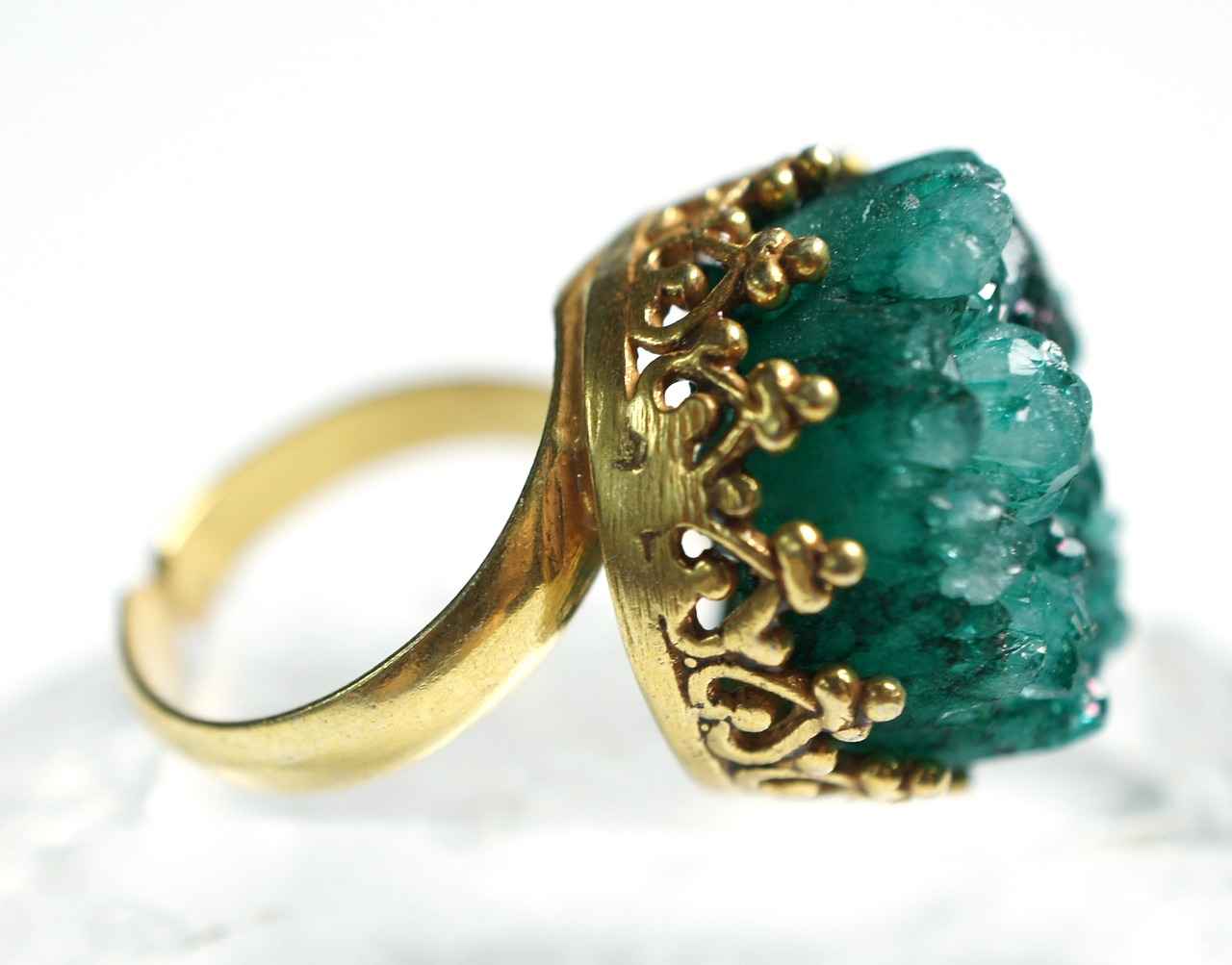
What Are the Risks of Buying and Selling Estate Jewelry?
Engaging in the estate jewelry market can be both rewarding and challenging. While the allure of unique pieces and potential profits is strong, it is essential to understand the risks involved in buying and selling these items. This section explores the various risks, including counterfeit concerns and market fluctuations, to help you navigate the estate jewelry landscape effectively.
When venturing into the estate jewelry market, it is crucial to be aware of the potential pitfalls that can affect your transactions. Understanding these risks can significantly mitigate losses and enhance your buying and selling experience.
One of the most pressing issues in the estate jewelry market is the prevalence of counterfeit items. As demand for unique and vintage pieces grows, so does the likelihood of encountering fake jewelry. Counterfeiters often create convincing replicas that can deceive even experienced buyers. To protect yourself:
- Conduct thorough research: Familiarize yourself with the specific brands, styles, and hallmarks associated with authentic estate jewelry.
- Seek professional appraisals: If you are uncertain about a piece’s authenticity, consider consulting a certified appraiser who can provide expert verification.
- Ask for documentation: Request any available paperwork that can establish the item’s provenance and authenticity.
The estate jewelry market is not immune to fluctuating prices, which can be influenced by various factors, including economic conditions, fashion trends, and consumer demand. To navigate these changes effectively:
- Monitor market trends: Keep an eye on auction results, online sales, and expert reports to gauge the current state of the market.
- Understand seasonal variations: Prices can vary based on the time of year, with certain periods yielding higher demand for specific types of jewelry.
- Be cautious during economic downturns: Economic instability can lead to decreased demand and lower prices, making it essential to time your transactions wisely.
Another risk involves the legal aspects of buying and selling estate jewelry. Issues such as stolen property, lack of clear ownership, and ethical sourcing can arise. To mitigate these risks:
- Verify ownership: Ensure that the seller has the legal right to sell the jewelry and that it is not stolen or under dispute.
- Educate yourself on laws: Familiarize yourself with local regulations regarding the sale of second-hand jewelry to avoid legal complications.
Lastly, emotional attachment can cloud judgment, leading to overvaluation of pieces. Sellers may have sentimental ties to their jewelry, which can result in unrealistic price expectations. To counter this:
- Seek objective opinions: Consult with appraisers or experienced jewelers to obtain an unbiased valuation of your items.
- Be prepared to negotiate: Understand that the market dictates prices, and be open to adjusting your expectations based on expert advice.
In conclusion, while the estate jewelry market offers exciting opportunities, it is essential to remain vigilant and informed about the risks involved. By understanding counterfeit concerns, market fluctuations, legal considerations, and emotional factors, you can make more informed decisions that enhance your buying and selling experience.
Counterfeit Concerns in the Market
In the world of estate jewelry, the risk of encountering counterfeit pieces is a significant concern for buyers and sellers alike. With the increasing popularity of vintage and antique jewelry, the market has become a breeding ground for fraudsters looking to capitalize on unsuspecting consumers. This reality makes it imperative for anyone involved in the estate jewelry market to prioritize authenticity verification.
The rise in counterfeit estate jewelry is alarming. Many pieces are deceptively convincing, making it difficult for even seasoned collectors to discern the real from the fake. Counterfeit items can be made from inferior materials or designed to mimic the styles of genuine pieces. This not only affects the financial investment but can also tarnish the reputation of sellers and collectors.
Thorough research is vital when purchasing estate jewelry. This includes understanding the history of the piece, the materials used, and the craftsmanship involved. Buyers should familiarize themselves with reputable brands and hallmark stamps that indicate authenticity. Knowledge is power, and being informed can prevent costly mistakes.
- Appraisals: Seek professional appraisals from certified gemologists who can provide a detailed analysis of the jewelry.
- Documentation: Request any available certificates of authenticity or receipts from previous sales.
- Expert Opinions: Consult with experts in the field, such as antique dealers or experienced collectors, who can offer insights into the piece’s legitimacy.
In today’s digital age, technology offers tools that can aid in verifying the authenticity of estate jewelry. There are apps and online databases that allow users to cross-reference items with known authentic pieces. Additionally, some sellers provide high-resolution images and videos to showcase the details of the jewelry, which can help buyers make informed decisions.
Investing in estate jewelry requires caution. To protect your investment, consider purchasing from reputable dealers and platforms that have a return policy in place. Always be wary of deals that seem too good to be true, as they often are. Trust your instincts and don’t hesitate to walk away from a transaction if something feels off.
Keeping up with current market trends is crucial for both buyers and sellers. Understanding which styles and pieces are in demand can help you make better purchasing decisions. Furthermore, being aware of economic factors that influence jewelry prices can prepare you for fluctuations in the market.
In conclusion, the prevalence of counterfeit estate jewelry underscores the importance of diligent research and verification. By employing various methods of authentication and remaining informed about market trends, you can protect your investment and ensure that your estate jewelry collection is both valuable and genuine.
Market Fluctuations: Staying Informed
In the dynamic world of estate jewelry, understanding market fluctuations is crucial for both buyers and sellers. The jewelry market is influenced by a myriad of factors, including economic conditions, consumer preferences, and even geopolitical events. Staying informed about these elements can significantly enhance your decision-making process and ultimately lead to more profitable transactions.
Keeping abreast of market trends and economic factors affecting jewelry prices is essential for making informed buying and selling decisions. A thorough understanding of these trends allows you to:
- Identify the Right Time to Buy or Sell: Timing can make a significant difference in the price you pay or receive. For instance, during economic downturns, jewelry prices may drop, presenting a buying opportunity.
- Assess Value Accurately: Knowledge of current market values enables you to evaluate whether a piece of jewelry is priced fairly, ensuring that you don’t overpay or undersell.
- Spot Emerging Trends: Trends in fashion, materials, and consumer tastes can affect the desirability of certain types of jewelry. Being aware of these shifts can guide your purchasing decisions.
Several economic factors play a pivotal role in shaping the jewelry market:
- Gold and Silver Prices: Fluctuations in the prices of precious metals directly affect the cost of jewelry. When gold prices rise, the overall value of gold jewelry typically increases as well.
- Consumer Spending Habits: Economic stability often leads to increased consumer spending. When people feel financially secure, they are more likely to invest in luxury items, including jewelry.
- Global Supply Chain Issues: Events such as natural disasters or political unrest can disrupt the supply chain, leading to scarcity and increased prices.
Staying informed requires a proactive approach. Here are some effective strategies:
- Follow Industry News: Subscribe to jewelry trade publications and websites that provide insights into market trends and economic factors affecting the industry.
- Join Online Forums and Groups: Engaging with communities of jewelry enthusiasts and professionals can provide valuable firsthand information and tips.
- Attend Trade Shows and Auctions: These events offer opportunities to see the latest trends and network with other industry players.
Utilizing various resources can enhance your understanding of the market:
| Resource Type | Description |
|---|---|
| Market Reports | Detailed analyses published by industry experts that provide insights into pricing trends and forecasts. |
| Online Marketplaces | Platforms like eBay and Etsy can help you gauge current market prices by observing selling trends. |
| Jewelry Appraisers | Professional appraisers can offer insights on value based on current market conditions. |
In conclusion, being informed about market fluctuations and economic factors is not just beneficial but essential for anyone involved in buying or selling estate jewelry. By leveraging the right resources and strategies, you can make more informed decisions that enhance your profitability and minimize risks in this vibrant market.

Tips for Successful Transactions in Estate Jewelry
Navigating the estate jewelry market requires not only knowledge but also effective strategies to ensure profitable transactions. Whether you are buying or selling, implementing the right approaches can significantly enhance your experience and financial outcomes. Here are some key tips to consider:
- Research the Market: Before making any transactions, it’s crucial to understand current market trends. Research the types of estate jewelry that are in demand, and familiarize yourself with price ranges. Websites like Jewelry.com and 1stdibs can provide valuable insights.
- Know Your Jewelry: Understanding the specifics of the jewelry you are interested in is essential. Pay attention to factors such as the quality of gemstones, metal purity, and the piece’s historical significance. This knowledge will empower you during negotiations.
- Build Relationships with Sellers: Establishing rapport with sellers can lead to better deals. Attend local estate sales and auctions regularly, and engage with sellers. A friendly relationship can often result in favorable negotiations.
- Negotiate Wisely: Whether you are buying or selling, negotiation is key. Don’t be afraid to make an offer below the asking price, but also be prepared to justify your offer with market research. Strong negotiation skills can lead to significant savings or increased profits.
- Documentation is Essential: Always request documentation for the jewelry you are buying or selling. Appraisals, certificates of authenticity, and receipts can provide credibility and help in justifying prices. Having proper documentation can also facilitate smoother transactions.
- Utilize Online Platforms: Online marketplaces like Ruby Lane and The RealReal can connect you with a broader audience. However, be sure to follow best practices for online selling, such as high-quality images and detailed descriptions.
- Be Aware of Counterfeit Risks: The estate jewelry market can be rife with counterfeit items. Always perform due diligence to verify the authenticity of pieces. Familiarize yourself with the characteristics of genuine items to avoid costly mistakes.
- Stay Informed on Market Fluctuations: Jewelry prices can fluctuate based on various factors, including economic conditions and trends in fashion. Keeping yourself updated will help you make informed decisions when buying or selling.
- Consider Timing: Timing can greatly affect your transaction’s success. Certain times of the year may see higher demand for estate jewelry, such as during the holiday season. Plan your buying and selling activities accordingly.
- Be Patient: Successful transactions often require patience. Whether you are waiting for the right buyer or the perfect piece to acquire, taking your time can lead to better outcomes. Rushing can result in missed opportunities or hasty decisions.
By implementing these strategies, you can enhance your overall experience in the estate jewelry market. With careful planning and informed decision-making, you can maximize your profitability and enjoy the journey of collecting and selling unique pieces.
Negotiation Skills: Getting the Best Deal
When it comes to buying or selling estate jewelry, the ability to negotiate effectively can be a game-changer. Strong negotiation skills not only influence the final sale price but can also enhance the overall experience of the transaction. Understanding how to navigate conversations and make persuasive arguments can lead to better deals and increased profits.
Negotiation is a critical component in the world of estate jewelry. Whether you are a buyer looking for the best price or a seller aiming to maximize profits, having strong negotiation skills can significantly impact your outcomes. Here are a few reasons why:
- Price Flexibility: Many sellers have a range of prices in mind. A skilled negotiator can often secure a lower price for buyers or a higher price for sellers.
- Building Rapport: Establishing a connection with the other party can lead to more favorable terms and conditions.
- Understanding Value: Negotiation involves articulating the value of the jewelry based on its history, craftsmanship, and market trends, which can justify your asking or offering price.
To become a proficient negotiator in the estate jewelry market, consider the following strategies:
- Research: Before entering negotiations, conduct thorough research on the piece in question. Understand its market value, history, and comparable sales to build your case.
- Set Clear Goals: Know what you want to achieve from the negotiation. Whether it’s a specific price point or terms of sale, having clear objectives will guide your discussions.
- Practice Active Listening: Pay attention to the other party’s needs and concerns. This will not only help you build rapport but also allow you to tailor your arguments effectively.
- Be Patient: Negotiation can take time. Avoid rushing the process, as patience often leads to better outcomes.
- Be Willing to Walk Away: Sometimes, the best negotiation tactic is to be prepared to walk away. This shows you are serious about your terms and can lead the other party to reconsider their position.
Even seasoned negotiators can fall into traps that undermine their effectiveness. Here are some common mistakes to avoid:
- Failing to Prepare: Entering a negotiation without adequate research can lead to poor outcomes.
- Being Overly Aggressive: While assertiveness is important, being too aggressive can alienate the other party and hinder negotiations.
- Ignoring Body Language: Non-verbal cues can provide valuable insights into the other party’s thoughts and feelings. Pay attention to their body language during discussions.
Having proper documentation can enhance your negotiating power. Consider the following:
- Appraisals: A professional appraisal can provide an objective value for the jewelry, which can be a powerful tool in negotiations.
- Provenance Documentation: Providing evidence of the jewelry’s history can justify its value and help in negotiations.
In conclusion, honing your negotiation skills is essential for anyone involved in the estate jewelry market. By understanding the importance of negotiation, employing effective strategies, avoiding common pitfalls, and leveraging documentation, you can significantly influence the final sale price, whether you are buying or selling. Remember, the key to successful negotiations lies in preparation, communication, and the willingness to find a mutually beneficial agreement.
Documentation and Appraisals
When it comes to selling estate jewelry, documentation and appraisals play a crucial role in establishing the value and credibility of your pieces. These elements not only provide potential buyers with the necessary information but also significantly enhance your ability to justify your asking price.
Having proper documentation for your estate jewelry serves multiple purposes. First and foremost, it acts as a proof of authenticity. Buyers are often wary of counterfeit items, and having certificates of authenticity or receipts from reputable jewelers can alleviate these concerns. Furthermore, documentation can include details about the jewelry’s history, previous ownership, and any notable features, which can add to its allure and value.
Appraisals are essential in determining the fair market value of your jewelry. A qualified appraiser will evaluate various factors, including the quality of materials, craftsmanship, and market demand. This professional assessment provides a solid foundation for your asking price, making it easier to negotiate with potential buyers. Additionally, having an appraisal can help in insuring your jewelry, offering peace of mind in case of loss or theft.
In the competitive market of estate jewelry, credibility is paramount. Buyers are more likely to trust sellers who can provide thorough documentation and professional appraisals. This trust can translate into quicker sales and potentially higher offers. When buyers feel confident in the legitimacy of their purchase, they are more inclined to meet your asking price or even make an offer above it.
- Consult Reputable Jewelers: Start by visiting established jewelers who offer appraisal services. Look for those with good reviews and credentials.
- Keep Records: Always retain any receipts, certificates, or reports related to your jewelry, as these can be invaluable during the selling process.
- Regular Updates: Jewelry values can fluctuate over time, so consider getting your pieces re-appraised every few years to ensure you have the most current valuation.
In summary, having proper documentation and appraisals is not just a formality; it is a strategic advantage when selling estate jewelry. By enhancing the credibility of your pieces and justifying your asking price, you can attract serious buyers and maximize your profits. Whether you are a seasoned seller or new to the estate jewelry market, investing time and resources into obtaining accurate documentation and appraisals can make a significant difference in your selling experience.
Frequently Asked Questions
- What is estate jewelry?
Estate jewelry refers to pre-owned pieces, often with unique histories and craftsmanship. These items can be valuable due to their age, rarity, and the quality of materials used, making them a great investment for buyers and sellers alike.
- Where can I buy estate jewelry?
You can find estate jewelry at various places, including online marketplaces like eBay and Etsy, local estate sales, and auctions. Each option has its pros and cons, so it’s essential to do your research to find the best deals.
- How do I evaluate the value of estate jewelry?
Evaluating estate jewelry involves assessing factors like the quality of gemstones (cut, clarity, color, carat weight) and the purity of metals (gold, silver, platinum). Getting an appraisal from a certified jeweler can also help establish its market value.
- What are the best platforms to sell estate jewelry?
For maximum profit, consider selling through reputable online platforms like Ruby Lane or The RealReal, or directly to local jewelry stores. Each option has its advantages, so choose one that aligns with your selling strategy.
- What risks should I be aware of when buying or selling estate jewelry?
Potential risks include encountering counterfeit items and fluctuations in market prices. It’s crucial to conduct thorough research and stay informed about current trends to protect your investment.

